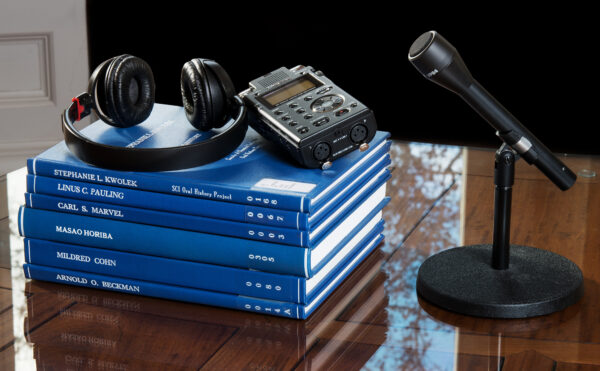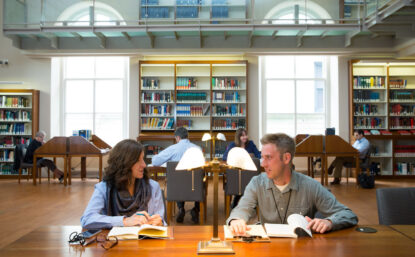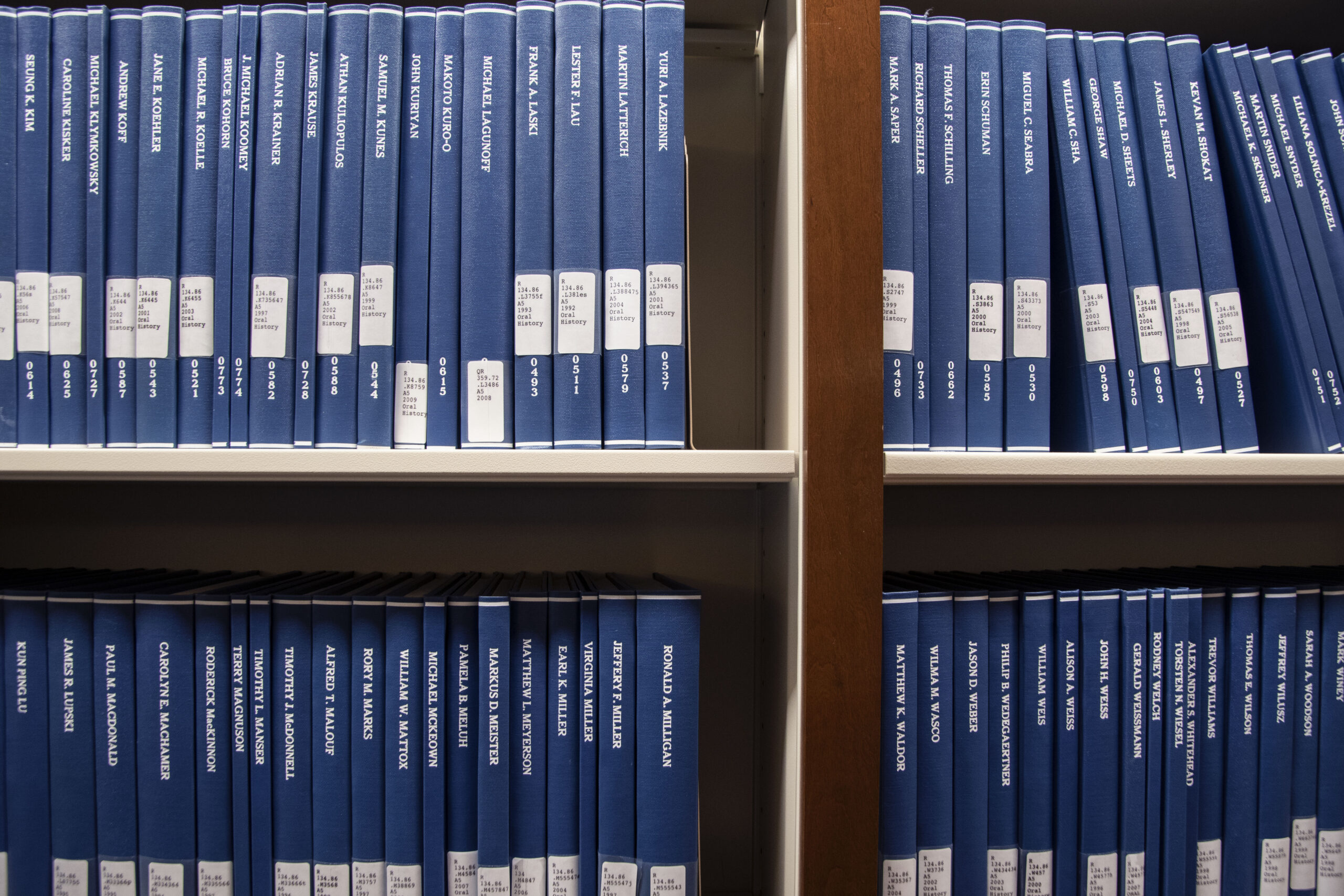Oral History Projects
While individual oral histories can contribute to specific research goals and agendas, the strength of an oral history collection relies on the ability of individual oral histories to “speak” to each other. Scientists and engineers, though often credited individually for a discovery, are rarely lone researchers working in isolation from other scientists. The knowledge produced in a scientific lab receives contributions not only from the members of the lab, but also from the interactions that these lab members have with others outside of their laboratory and from the scientific and engineering communities more generally.
Given this understanding, our program pursues the collection of oral histories with a mind to prosopographic research, that is, as investigations into the common characteristics of historical groups whose individuality can only be understood within the collective identity of the group. Learning about patterns of relationships and activities through the study of collective histories reveals much more about the scientific process and its products than any one oral history could do on its own.
Atmospheric Science
These oral histories focus on scientists who devote their research to understanding the complexities of particulate matter in the air, air quality, and emissions as each pertains to climate change.
Chemical History of Electronics
These oral histories document and explore the contributions of chemists, chemical engineers, metallurgists, and materials scientists to the development of modern electronics. This collection is sponsored in part by the Gordon and Betty Moore Foundation.
Imagining Philadelphia’s Energy Futures
How do Philadelphians imagine a sustainable future for their city? This oral history and public education project examines energy, climate change, and the future of Philadelphia.
Immigration and Innovation
This National Historical Publications and Records Commission grant-funded project made the oral history interviews of 70 immigrant scientists freely accessible and searchable.
Life Sciences Foundation
This collection comprises oral history and research interviews with individuals who played a significant role in the birth and growth of the biotechnology industry. In December 2015, the Life Sciences Foundation merged with the Chemical Heritage Foundation to form the Science History Institute; these interviews are predominantly those added to our collections after the merger.
Mass Spectrometry
These oral histories record the human dimensions related to the growth of mass spectrometry in academic, industrial, and governmental laboratories during the 20th century.
Nanotechnology
This oral history series is an important resource for the history of nanotechnology, documenting the lives and careers of key scientists and engineers who shaped and contributed to the contemporary practice of science and technology.
Toxic Substances Control Act
Through oral history interviews with individuals involved in the process of writing and negotiating the Toxic Substances Control Act (TSCA), we gain their perspective on the law, its impact, and whether or not it will continue to be effective in the 21st century.
Origins of Science and Technology Studies
These oral histories and research interviews focus on scholars who applied knowledge from the social sciences and humanities to study the social, political, and cultural aspects of scientific practices and technological development, ultimately leading to the formation of fields under the umbrella of Science and Technology Studies.
Pew Biomedical Scholars
This collection details life histories of biomedical scientists who received the prestigious Pew Biomedical Scholar Award for early-career researchers.
President’s Council of Advisors on Science and Technology
This joint project with Rice University, funded in part, through a National Science Foundation grant, features interviews with former members of the President’s Council of Advisors on Science and Technology (PCAST), a federal advisory committee of preeminent scientists and engineers appointed by and serving the president of the United States.
REACH Ambler
Resources for Education and Action for Community Health in Ambler (REACH Ambler) brings into focus the history of Ambler, Pennsylvania, a town long affected by exposure to asbestos from the former Keasbey and Mattison asbestos plants. The oral histories conducted with local residents, community activists, and EPA officials for this project informed the exhibits, online resources, and related public programs all aimed at fostering an understanding of different perspectives on risk, health, and the environment. A National Institutes of Health grant with the University of Pennsylvania supported this project.
Science and Disability
The Center for Oral History is documenting the lives and contributions of people who identify as having (dis)abilities and who work or study in STEM fields.
Scientific and Technical Information Systems
These oral histories focus on those who contributed to the advancement of the classification, manipulation, dissemination, storage, and retrieval of information and who developed new information systems in the 20th century, especially those who focused on scientific knowledge.
TSCA: From Inception to Reform
An oral history project about the Toxic Substances Control Act, the bill authorizing the Environmental Protection Agency to require reporting and testing of chemical substances in commerce.
Voices of Science
Hear the stories of five individuals who have faced personal, professional, and social challenges in their scientific careers.



